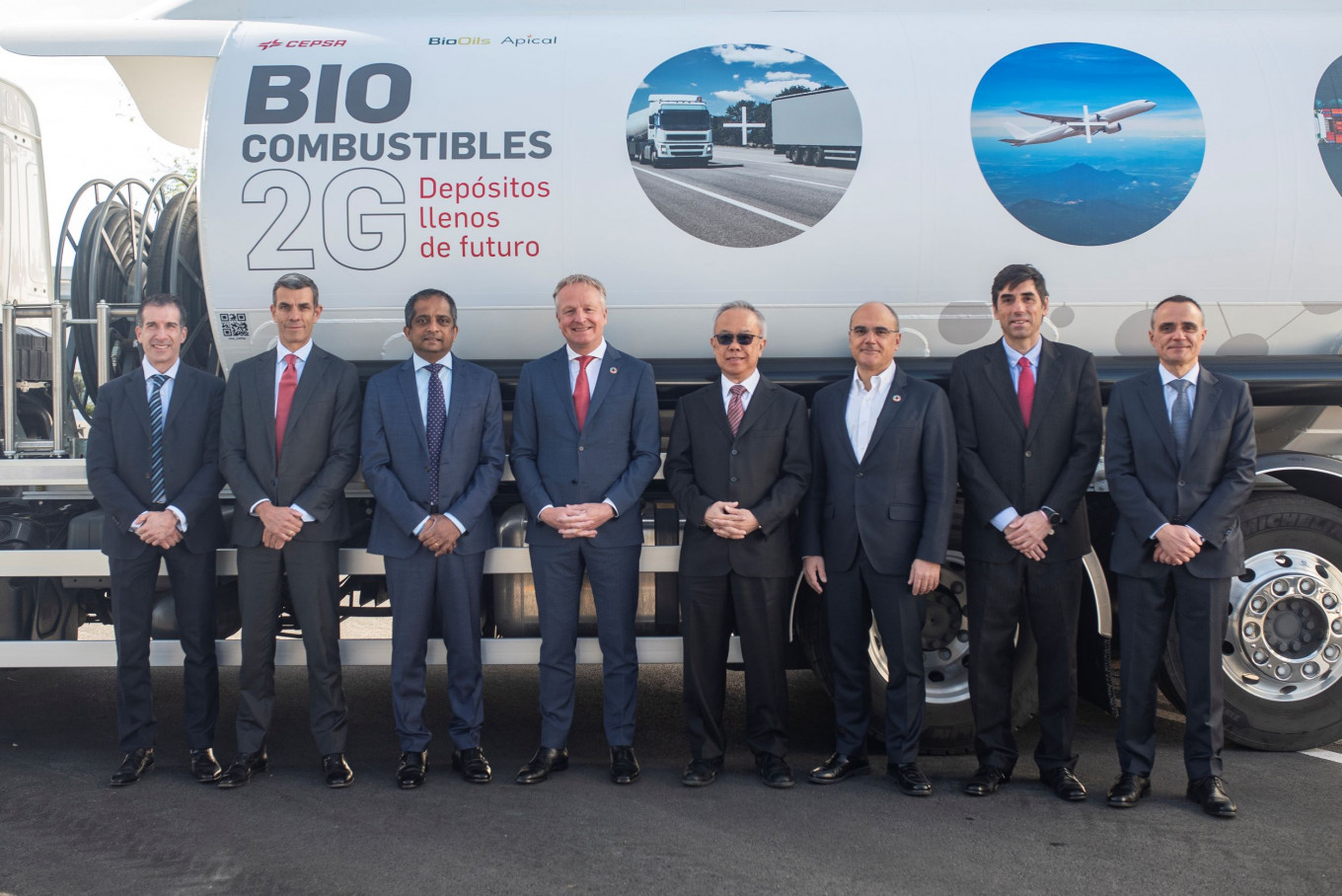Popular Reads
Top Results
Can't find what you're looking for?
View all search resultsPopular Reads
Top Results
Can't find what you're looking for?
View all search resultsApical spreads its wings in sustainable aviation, fuels industry, inks deal with Cepsa
Apical, in collaboration with Spain energy company Cepsa, formed a joint venture to produce second generation (2G) biofuels by constructing the largest plant in southern Europe. The new project will add to the portfolio of Apical’s subsidiary on renewable energy, Bio-Oils.
Change text size
Gift Premium Articles
to Anyone
A
pical, in collaboration with Spain energy company Cepsa, has formed a joint venture to produce second generation (2G) biofuels by constructing the largest plant in southern Europe. The new project will add to the extensive portfolio of Apical’s subsidiary on renewable energy, Bio-Oils.
The joint venture will entail an investment of up to €1 billion (US$ 1.1 billion), making it one of the largest private investments in the history of the southern Spanish region of Andalusia. This alliance will also mark Apical’s entry to the sustainable aviation fuels (SAF) market.
“Aviation emissions account for two to three percent of global energy-related CO2 emissions and are expected to grow by 300-700 percent by 2050. To reduce the direct carbon emissions of flying, SAF can be an immediate solution. A next-generation low-carbon fuel produced from 100 percent renewable waste and residue raw materials, it works seamlessly with existing aircraft engines and fueling infrastructure. As the availability of waste and residue grows in tandem with the expansion of Apical’s global footprint and capacities, we are able to create value-added partnerships for our waste stream in various parts of the world, especially in Asia,” explained Pratheepan Karunagaran, Executive Director of Apical.
“This alliance is a decisive step in our strategy to lead biofuels in Spain and Portugal and positions Andalusia as a European benchmark in sustainable energy production and circular economy. Second-generation biofuels are an immediate solution to support our customers’ energy as they can be used in conventional engines, while enabling local development and increased energy autonomy in Europe," revealed Maarten Wetselaar, CEO of Cepsa.
The partnership is partially founded on the long history between Cepsa as one of Bio-Oil’s largest customer for many years. Oscar Garcia, Bio-Oils’ CEO calls the new alliance “a natural evolution of our relationship.”
Apical, a leading vegetable oil processor, is a member of the Singapore-headquartered Royal Golden Eagle (RGE) group of companies. It is expected that the new venture will provide a key milestone in the group’s strategy to produce decarbonized aviation, maritime and land transportation.
The new plant is expected to begin operation in 2026 and can produce up to 500,000 tons of SAF and/or renewable diesel annually, enabling the reduction of CO2 emissions by up to 90 percent, as compared to traditional fuels. SAF has been viewed as a tool to contribute to the net zero future. The new facility will be located at Cepsa’s La Rábida Energy Park, in the Spanish province of Huelva.
“Cepsa has been investing in Huelva and Andalusia for almost 60 years and has been an active part and main player in the progress experienced in our land. Cepsa has made an outstanding contribution to our progress and to the creation of employment, with almost 8,000 direct and indirect jobs," said Juan Manuel Moreno Bonilla, President of the Regional Government of Andalusia, as he signals his approval of the new venture via a speech.
However, obstacle around the production of SAF still persists, such as access to renewable waste and residue raw materials. This is why a strategic collaboration with Apical is essential, as the company is a global integrated processor of vegetable oils and therefore has the ability to extract waste and residue from its supply chain and its processes in a transparent and sustainable manner.
The plant will secure the majority of its feedstock supply from Apical’s agricultural waste and residue through a global, long-term agreement. Meanwhile, Cepsa will contribute its technical expertise and experience in the development of large industrial projects and fuel production; and knowledge of the European market and the decarbonization goals of its customers in the transport sector.
“Apical’s ample supply of high-quality second-generation feedstock is key to ensuring that the new joint venture delivers on our shared vision to reduce greenhouse gas emissions across air, sea and land transport,” said Dato’ Yeo How, President of Apical.
He continued, “The wider use of SAF and renewable diesel provides significant benefits on a global scale, both in terms of mitigating the effects of climate change and promoting sustainable economic growth. Apical, through Bio-Oils, will ensure the supply of raw materials and contribute our own expertise in biofuels production.”
The new project is in line with the company’s Apical2030 Pillar 3 of its strategic sustainability roadmap, which highlights Green Innovation. Designed as a digital native plant, the new operation incorporates state-of-the-art technology including the latest industry advances in artificial intelligence (AI), internet of things (IoT) and data analysis to maximize process efficiency, using innovation for environmental protection in every level of production.
Pratheepan concluded that SAF in Asia has much potential for growth and development. He however expressed his optimism that more countries are beginning to recognize the importance of sustainable practices and environmental responsibility. The focus on net-zero is expected to accelerate the production of SAF throughout the aviation industry moving forward.










